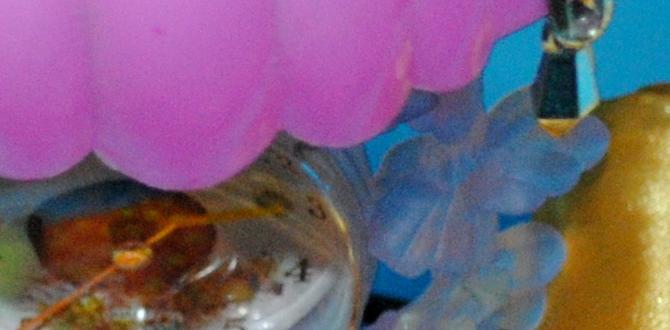Have you ever heard about protein in the urine? It might sound odd, but it’s an important health clue. Imagine your body as a superhero team, each part helping to keep you safe. Sometimes, the team doesn’t work quite right, and things slip through the cracks.
When you notice protein in your urine, it’s like your body is sending a signal. This can mean something is off with your kidneys. They usually do a great job of filtering out waste while keeping the good stuff inside. But when they struggle, protein can leak out.
Why should you care about this? Well, understanding what this means can help you stay healthy. Did you know that a little protein in your urine can happen after a big game or a workout? It’s true! Your body works hard, and sometimes it shows. But if it happens often, it might be time to talk to a doctor.
In this article, we’ll explore what it means to have protein in the urine. We’ll look at causes, symptoms, and when to seek help. Ready to find out more?
What Does Protein In The Urine Mean: Causes And Symptoms

What Does Protein in the Urine Mean?
Finding protein in urine can raise concerns. It may mean your kidneys aren’t filtering properly. In healthy people, urine has little to no protein. If you notice foaminess in the toilet, it might be a sign. Sometimes, stress or exercise can cause temporary protein in urine. However, ongoing levels may suggest conditions like diabetes or kidney disease. It’s important to consult a doctor for a proper diagnosis. Isn’t it surprising how much our bodies can tell us?Understanding Proteinuria
Definition of proteinuria. Types: transient vs. persistent.Proteinuria is when proteins sneak into your urine. Normally, your kidneys keep them in the blood. Think of them as valuable items in a treasure chest! If they escape, it may mean something is wrong.
There are two types: transient and persistent. Transient proteinuria is like that guest who pops in for a quick chat and leaves. It can happen due to stress or exercise. Persistent proteinuria sticks around longer, often signaling a problem with your kidneys, like they’ve taken a vacation for too long.
| Type | Description |
|---|---|
| Transient | Short-term, usually harmless |
| Persistent | Long-term, may require medical attention |
So, if your urine suddenly has special protein guests, it’s worth checking with a doctor!
Causes of Protein in the Urine
Kidneyrelated causes. Nonkidneyrelated causes.There are many reasons why protein might sneak into urine. Some are a bit serious, while others are merely pesky. First off, kidney-related issues can cause this. Conditions like glomerulonephritis can be the troublemaker. They are like that one friend who always spills juice on the carpet! Non-kidney problems also play a role. High blood pressure and diabetes can stretch those tiny filters in the kidneys, allowing protein to escape. Here’s a neat little table for a quick look:
| Kidney-Related Causes | Non-Kidney-Related Causes |
|---|---|
| Glomerulonephritis | High Blood Pressure |
| Kidney Stones | Diabetes |
Protein might be a good thing in our muscles, but in the wrong place, it can cause concern!
Symptoms Associated with Proteinuria
Common symptoms. When to seek medical attention.Some signs can show up if you have proteinuria. Common symptoms are:
- Swelling in the hands, feet, or face.
- Foamy or bubbly urine.
- Frequent urination, especially at night.
You should seek medical help if you notice these symptoms. Early treatment helps prevent serious problems. Regular check-ups can also catch issues sooner.
What should I do if I notice symptoms?
If you notice symptoms, contact a healthcare professional right away. They can explain what’s happening and suggest the best action.
Diagnosis of Proteinuria
Tests used to detect protein in urine. Importance of urine proteintocreatinine ratio.Doctors use different tests to find protein in urine. One common test is the dipstick test, which is quick and easy. If it shows protein, more tests may follow. One important test is the urine protein-to-creatinine ratio. This measures how much protein is in your urine compared to creatinine. Understanding this ratio helps doctors check kidney health. Plus, it doesn’t require a 24-hour urine collection, which sounds like a party nobody wants to attend!
| Test | Description |
|---|---|
| Dipstick Test | Quick check for protein presence. |
| Urine Protein-to-Creatinine Ratio | Measures protein level against creatinine level. |
Using these tests helps catch problems early. Remember, your kidneys work hard, so treat them well! After all, they’re like your body’s personal cleaning crew.
Health Implications of Having Protein in Urine
Potential kidney diseases. Other health conditions linked to proteinuria.Protein in urine may sound funny, but it can hint at serious health issues. If your kidneys are not working well, they might let protein slip through. This can point to potential kidney diseases like glomerulonephritis. However, it doesn’t stop at kidneys. Conditions like diabetes and high blood pressure can also show up with proteinuria. Think of your body as a team—when one player is off, the whole team feels it!
| Health Condition | Related Issues |
|---|---|
| Kidney Diseases | Glomerulonephritis |
| Diabetes | Kidney damage |
| High Blood Pressure | Heart disease risk |
Treatment Options for Proteinuria
Lifestyle changes. Medical interventions and medications.Changing your lifestyle can help with proteinuria. Eating healthy foods, drinking enough water, and exercising are great options. You can also stop smoking and cut back on alcohol.
Sometimes, doctors give medicine to help. This might include:
- Blood pressure medications
- Diabetes treatments
- Special diets
By making these changes, you can support your health and reduce protein in your urine.
What are the common treatments for high protein in urine?
Common treatments include lifestyle changes and medications. Healthy eating and exercise are key. Your doctor may also prescribe specific medicines.
Preventive Measures
Diet and nutrition recommendations. Regular monitoring and checkups.Eating right plays a big role in keeping your kidneys happy. Fill your plate with fruits, veggies, and whole grains. They are like VIP guests at a health party! Keep an eye on your sodium and sugar intake; too much can rain on the parade.
Regular checkups are also essential. Think of them as your body’s tune-ups! It’s smart to monitor your health and catch any problems early. Remember, a little prevention can go a long way in keeping your body balanced!
| Food Group | Recommendations |
|---|---|
| Fruits | Daily servings for vitamins |
| Vegetables | At least 3-4 servings daily |
| Whole Grains | Replace refined grains |
| Sodium | Limit intake to less than 2,300 mg |
FAQs About Protein in the Urine
Common concerns and misunderstandings. Expert answers to frequently asked questions.Many people wonder about protein in urine. It can sound scary, but it’s often not a big deal. Proteinuria is the fancy term for it. Some think it’s just about eating too much protein, like making your muscles bulge. Surprise! That’s not true. Your body may just be having a little freak-out. Common questions include: “Is this serious?” or “Will I turn into a superhero?” Experts say it may be a sign of kidney trouble, but don’t panic. It can also happen after exercise or illness. So, grab your favorite snack and let’s clear up some mysteries!
| Question | Expert Answer |
|---|---|
| Is protein in urine dangerous? | Not always. It can be a sign, but many times it’s harmless. |
| Can I eat more protein? | Sure! Just don’t go overboard. Balance is key. |
| What should I do next? | See a doctor for a check-up. They’ll help explain. |
Conclusion
In summary, protein in urine can mean your kidneys are not working properly. This can signal health issues we should not ignore. If you notice this, it’s important to talk to a doctor. They can provide the right tests and guidance. For more information, consider reading about kidney health and how to keep your body strong.FAQs
Sure! Here Are Five Related Questions On The Topic Of Protein In The Urine:Sure! When there’s too much protein in urine, it might mean the kidneys aren’t working well. Kidneys are like filters for our blood. They keep the good stuff and remove the waste. If we find protein in your urine, doctors may want to check your kidneys and other health parts. It’s kind of like getting a check-up to make sure everything is okay!
Sure! Please ask your question, and I’ll be happy to help.
What Are The Common Causes Of Proteinuria (Protein In The Urine)?Proteinuria means you have extra protein in your urine. This can happen for a few reasons. First, if you’re sick or have an infection, your body might release more protein. Second, high blood sugar from diabetes can cause this too. Third, some medicines can lead to protein in the urine. Lastly, if your kidneys are not working well, they can let protein leak out.
How Is Proteinuria Diagnosed And What Tests Are Used To Assess Its Severity?Doctors can check for proteinuria by testing your urine. They usually ask you to collect a urine sample in a cup. Then, they use special tests to look for protein. Sometimes, they measure how much protein is in your urine to see how serious it is. These tests help doctors understand your kidney health.
What Are The Potential Health Implications Of Having Protein In The Urine?Having protein in your urine can mean that your kidneys aren’t working well. Kidneys help clean your blood and make urine. If they’re damaged, proteins can leak out. This might make you feel tired, swell up, or have more infections. It’s important to see a doctor if this happens, so they can help you feel better.
Can Lifestyle Factors, Such As Diet And Exercise, Influence The Levels Of Protein In Urine?Yes, lifestyle factors like diet and exercise can affect protein levels in your urine. Eating a lot of protein-rich foods can increase these levels. Exercise can help your body stay healthy and might lower protein in urine. Drinking enough water is also important. So, what we eat and how active we are can change our urine.
What Treatments Or Lifestyle Changes Are Recommended For Individuals With Persistent Proteinuria?If you have proteinuria, which means your urine has too much protein, you should make some changes. Drink plenty of water to help your kidneys. Eating healthy foods like fruits, vegetables, and whole grains is important too. You might need to visit a doctor for check-ups and medicines to help your kidneys work better. Exercise regularly, and try to keep a healthy weight.







